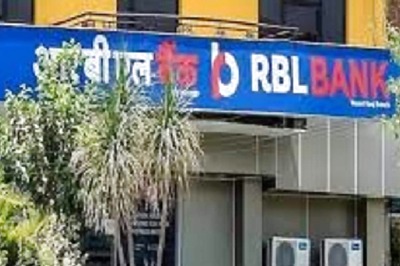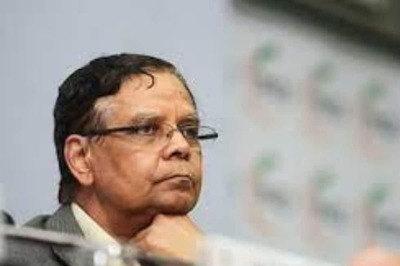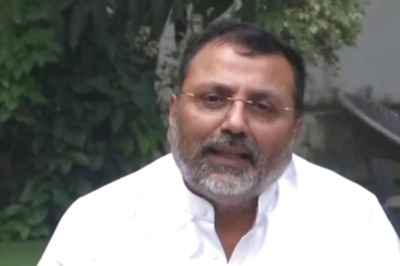
views
Budget 2024 Expectations: While the budget is still a few weeks away, the Indian FinTech industry has a well-defined wishlist for Union Budget 2024. FinTech advocates for a balanced regulatory environment that fosters innovation while ensuring consumer protection.
It’s also worth noting that there are varying opinions within the industry on some of these issues. Some FinTechs, for example, might prefer a lighter regulatory touch, while others might prioritise consumer protection more. Ultimately, the budget will need to find a balance that addresses the needs of both the industry and the public.
Also Read: Budget 2024 Expectations: ‘Affordability’ Top Priority For Real Estate, Know Key Demands
Here are some key areas where they expect action:
Incentives for FinTechs
Aditya Gupta, founder & CEO, Credilio, said, “We are optimistic about the upcoming budget and hopeful that the focus on fortifying digital financial infrastructure demonstrates a commitment to advancing financial technology. After the recent regulatory enhancements, allowing tax breaks should create a conducive environment for FinTech innovation, empowering FinTechs to explore new avenues responsibly.”
Gupta said that the industry would be eager to see an emphasis on incentivising FinTech in under-serviced areas which complements the objective of creating a robust distribution infrastructure for financial inclusion. Thus government support is pivotal in catalysing positive change at the grassroots level.
Recognition of FinTech’s role in empowering MSMEs and SMEs, coupled with targeted incentives for Tier 2, 3, and 4 cities, should highlight a strategic push toward lasting financial inclusion.
Additionally, the consideration of permitting NBFCs to offer credit cards acknowledges FinTech’s evolving landscape, showcasing a commitment to adapting to changing financial dynamics will be a big win for the financial sector and the nation.”
Amrit Kaal & FinTechs
Nirav Choksi, co-founder & CEO, CredAble, highlighted that last year, the Union Budget tabled by the Finance Minister, Nirmala Sitharaman was a progressive one, listing the seven top priorities that would guide the government through the Amrit Kaal.
Choksi added that the upcoming Union Budget in 2024 presents an opportune moment to chart the course for the sustainable growth of FinTechs in the Indian economy. Introducing incentives for FinTechs committed to empowering underprivileged SMEs through financial and technical support would be a much-welcomed move.
Additional measures, such as maintaining the profitability of state-owned banks, enhancing credit guarantee schemes for MSMEs, introducing PLI schemes, and augmenting subsidies for small businesses, are eagerly anticipated. The financial services industry also expects key announcements about the management of Non-Performing Assets (NPAs).
Despite the finance minister signalling a lack of major announcements in the forthcoming budget before the 2024 general elections, the FinTech sector remains optimistic about the government’s commitment to implementing policies that foster sectoral growth, enhance outreach, and amplify India’s digital presence, Choksi added.
Virtual Digital Assets
Ashish Singhal, co-founder and group CEO, PeepalCo, underlined that India introduced its tax provisions for Virtual Digital Assets (VDA) two years ago, during the 2022 Budget.
“While the industry welcomed the definition and inclusion of VDAs in the Income Tax Act, certain provisions, such as the high TDS rate and the lack of offset have led many Indian VDA users to move to non-compliant foreign exchanges to trade, putting themselves at risk of losing their investment and breaking the law. It also led to lesser tax revenues for the exchequer.”
Singhal said that as an FIU-registered platform compliant with India’s KYC and PMLA rules, CoinSwitch urges the Government of India to consider the following.
- Reducing the Tax Deducted at Source (TDS) on VDAs, from 1% to 0.01%
- Allow offsetting and carrying forward losses from the sale of VDAs
- and treating income from VDAs on par with other capital assets
The Government of India has shown commendable leadership at the G20 to arrive at a roadmap for a global crypto framework and has implemented domestic regulatory frameworks such as anti-money laundering that are in line with global standards.
This could be the basis for India to reconsider its tax treatment of VDAs, which is an outlier, both domestically and internationally.
Reducing the tax arbitrage that exists today will also help stem the flight of capital, consumers, investments, and talent, as well as dent the grey economy for VDAs.




















Comments
0 comment